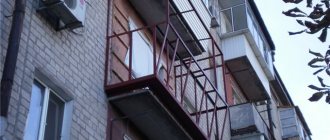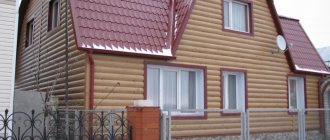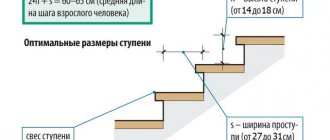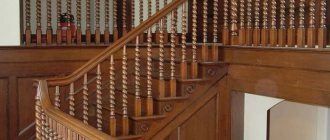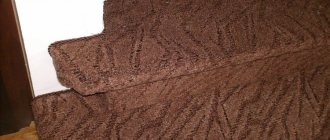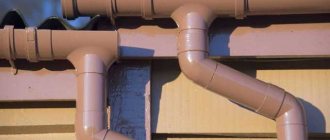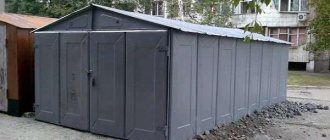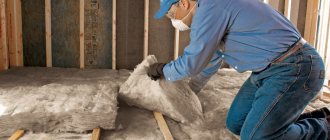The choice of fastening option should be made at the stage of staircase development. When designing a metal frame, it is determined whether the lower part of the staircase will be open, whether there will be access from below the steps, whether the mounting elements will be painted and with what, whether the absence of any elements (bolt heads or furniture plugs) on the surface of the steps is important.
This article talks about how to attach steps to the metal frame of your staircase under construction in various combinations of fastening materials and overall design, i.e. for stairs on bowstrings or stringers.
To begin with, you need to decide which steps will have to be attached. In most cases, the material for making steps is wood and for self-assembly of stairs it is the main one, although companies specializing in staircase production and installation make steps from glass, stone, and various polymers.
Steps can be fixed
- furniture bolts;
- self-tapping screws;
- futorka;
- Fisher fasteners.
Fastening steps to a metal frame with furniture bolts
Fastening steps with furniture bolts
Advantages: convenience, simplicity, reliability and speed of fastening; availability of quick disassembly if necessary (restoration, dismantling, replacement of treads).
Fastening steps to a metal frame with self-tapping screws
Fastening steps with self-tapping screws
The good thing about installing steps with self-tapping screws is that all fastening elements are located in the riser part and the external decorative finish is not affected. It is advisable to use powerful self-tapping screws with a deep cross-shaped or hexagonal groove for fastening to prevent the groove from being licked off when tightening.
Fastening the steps to the metal frame with a footer
Foot for fastening the step
Fastening steps to a metal frame using Fisher fasteners
Fastening the step to the corrugated pipe (Fisher)
A fairly new fastening method based on the use of a polymer Fisher fastener, on one side of which there is a large-diameter bushing with a hole in the center and conical notches that work like a herringbone (it is driven into the hole easily, but resists coming out), and on the other - a bushing , which opens when screwed into the self-tapping screw.
What should you pay attention to when choosing a step mounting option?
The choice of fastening option should be made at the stage of staircase development. When designing a metal frame, it is determined whether the lower part of the staircase will be open, whether there will be access from below the steps, whether the mounting elements will be painted and with what, whether the absence of any elements (bolt heads or furniture plugs) on the surface of the steps is important.
When building a staircase with your own hands, you often weld a structure from channels (stringers) and a corner (steps, ties). This option is easier to sew up at the bottom with decorative material. Drill the corners under the steps from above, and then screw them in from below with roofing screws.
In any case, you should try to design the staircase so that the step rests on the flange of the corner, channel or corrugated pipe and is attracted to them by fastening, and does not hang on point fasteners. Over time, any fastening weakens, especially in wood, and therefore many serious companies, after constructing a staircase, recommend re-stretching the entire structure after a year or two.
A staircase is almost always a compromise between what is desired and what is possible, so calculating a staircase requires an understanding of where, what and how to do it in order to take into account all the nuances even before the installation stage. Let's look at the basic procedure for designing a flight of stairs from A to Z.
The fastening of stair steps depends on the design of the staircase and the materials used, the covering of the steps and load-bearing elements, and the planned external finishing. Let's consider possible options for attaching wooden steps in wooden stairs.
There may be several options for manufacturing such a threshold. This article examines the drawing of the metal structure of the vestibule and a flight of stairs with several steps.
The combination of metal and wood is a very popular solution in the interior of a modern home. Metal gives the product strength, wood – excellent heat and sound insulating properties. A variety of combinations of two materials allows you to satisfy the requirements of any style.
Types of metal frame according to assembly method
To attach wooden steps to the frame you will need metal bolts.
There are many types of metal staircase frames. They can be monolithic elements made from stringers or fillies, suspension systems using bolts, or specialized modular structures. The most common are monolithic and modular systems.
Monolithic
The use of monolithic stringers is a traditional method of creating a metal base for any staircase. You can install one or a pair of stringers. The second option is more preferable. Because it provides two identical supports for future steps.
When using one stringer, the second side of the step must be fixed directly to the wall, which can create some inconvenience. Typically, holes are drilled in the boards through which they are mounted on the frame.
Sometimes it is advisable to use a system of one standard and one side stringer pressed against the wall. The role of such a stringer can be played by a corner. In this case, it is more logical to use special pins as fastenings, on which the board is mounted.
Modular
Welded metal frame for steps
Modular stairs have appeared on the market not so long ago, but have already gained popularity due to their ease of use and ease of assembly of structures of any size. Typically, a set of parts is created in factories and only assembled directly at the installation site.
The standard kit includes the following parts:
- basic modules;
- floor;
- intermediate.
Middle or intermediate modules can be custom-made with different heights and widths of steps. The base elements begin and end the staircase.
The material usually used is durable stainless steel or structural steel. Additionally, the surface can be coated with varnish or polymer.
“Staircase to the house” - professional production of stairs of all types
With “confident” carpentry skills and a thoughtful approach to the work, you can do it yourself, but you need to remember: stairs are critical structures that must be 100% safe. Complete reliability can only be ensured by accurate sizing calculations, competent manufacturing and installation, taking into account specific nuances.
offers professional services for the design and production of wooden, metal and combined stairs of all types. We will take into account the area and height of the room, ensure guaranteed convenience and safety of the base and fences, and select a design taking into account the interior of the home or office. For customers from Moscow and Moscow Region, we also offer installation services for wooden stairs - external, internal, with a metal frame and all others.
We work on ready-made projects and carry out individual orders. Finished stairs are delivered to customers (to regions of the Russian Federation - by transport companies). The product has a 12 month warranty.
Metal frame calculations
The main parameters of the frame - length, height, angle of inclination of the stairs
Before calculating the frame, it is necessary to accurately determine several basic parameters:
- height - the distance from the floor of the first floor to the floor of the second floor;
- length – the distance from the beginning of the first step to the end of the last step;
- tread depth;
- riser height.
The first two indicators are measured directly at the installation site. It is advisable to select the depth of the steps based on specific safety and ergonomic requirements.
The length of the stairs must be divided by the depth of the steps, the result will be the required number of steps. The length of the stringer can be determined using the Pythagorean theorem, taking it as the hypotenuse, and the height and length of the staircase as the legs.
How to make a wooden staircase to the second floor?
The whole process consists of planning, assembly and installation.
Selection of equipment
A single-flight wooden staircase is assembled with your own hands from parts and components:
- Steps. Their width is selected individually, but most often it is 1 m.
- The bowstring (2 pcs) is the heaviest part of the structure.
- Angle with galvanized coating for fixing steps, self-tapping screws (40 mm).
- Additional parts (posts, balusters, handrails).
- Finishing materials: stain, varnish.
Perform calculations and drawing
How to make a wooden staircase durable and aesthetically pleasing? The key points in planning the product are to correctly measure the dimensions of the opening, determine the number and size of steps. Next, you need to calculate the main dimensions of the future product and draw up a drawing. You can get the necessary calculations and advice from professionals on how to make a wooden staircase with your own hands.
Manufacturing process
To solve all the questions about how to make a wooden staircase yourself, carefully follow the recommendations:
For more detailed step-by-step instructions for making a wooden staircase with your own hands, watch the video:
The first thing any builder faces is the design of future work. In the case of building a staircase, you will need to create an actual drawing to scale.
Wooden stairs in the house are a very attractive element that can decorate or, conversely, spoil the appearance of any room. Beautiful carved stairs, like the one shown in the title photo, are the prerogative of professional assemblers and carvers, but this does not mean that simple structures assembled with your own hands cannot look impressive.
In today's article we will look at the installation of wooden stairs step by step. This material will allow you to assemble a high-quality structure with your own hands, without spending a lot of money on hiring specialists and materials.
The first thing any builder faces is the design of future work. In the case of building a staircase, you will need to create an actual drawing to scale.
It is a drawing, not sketches on a piece of cardboard or a pack of cigarettes. This approach will allow you to avoid common errors in the manufacture and assembly of parts.
Ideally, processing should be done on the structure in disassembled form.
Options for fastening wooden steps to a metal frame
You can attach the steps to the metal frame in several ways, depending on the specifics of the structure used and the preferences of the home owner.
Furniture bolts
Furniture bolts are used to attach wooden steps.
The simplest and most affordable method of attaching steps to a frame. The process involves drilling the required holes in the step and then using the appropriate bolts.
When installing, it is important to tighten the nut moderately, since too much force can damage the integrity of the wooden part.
A disadvantage of the method is the permanent location of the bolt head on the surface of the stairs. In some designs, tightening may be inconvenient. At the same time, the bolts are extremely convenient, easy to use and allow you to disassemble the structure if necessary.
Self-tapping screws
If you do not want to damage the outer surface of the steps, you can fasten them with self-tapping screws. In this case, powerful models with cross-shaped or hexagonal grooves are suitable. The best option is roofing screws with a hexagonal head and a sharp tip in the form of a drill. It is important to select screws specifically for wood, since similar models for metal may not provide the required engagement area.
For decorative stairs, special models of self-tapping screws with a countersunk head are suitable. A secret groove for the cap is created in the metal structure, which will not be visible even from the inside.
Futorka
Invisible fastening of steps to metal or stone
Futorka is a metal sleeve with external and internal threads. This fastening method is discreet and convenient. In addition, there are no problems with dismantling the steps.
To carry out installation, stationary preparation will be required, as well as precisely designed drawings. The steps can be fastened both from below and from the end.
Fisher fasteners
This method of attaching wooden steps to a metal frame appeared relatively recently. Based on the use of special polymer fastening Fisher. It includes a large diameter bushing on one side and a small bushing on the other side that opens when screwing in the self-tapping screw.
Immediately before installation, cores are installed in the holes on the frame, and the steps are then pressed through with marks. The fasteners are installed in the corresponding sockets, after which they are expanded using self-tapping screws. Due to this, the step will be securely fastened in its place, without slipping even under load. The structure can be further strengthened using glue.
Why a wooden staircase?
Indeed, metal and concrete are much stronger and more durable than wood. Installation of such stairs is carried out according to the “set it and forget it” principle, while natural wood needs to be constantly looked after, impregnated with an antiseptic, varnished, and potholes repaired.
As practice shows, it takes an amateur no more than 1 week to arrange a simple wooden march
Wood is installed much faster and costs much less, plus, according to statistics, half of the metal and concrete stairs in residential buildings are sheathed with wood in order to reduce the risk of injury to the structure. There is no need to sheathe the wooden span; it is already safe.
For more detailed step-by-step instructions for making a wooden staircase with your own hands, watch the video:
Required tools and materials
To attach wooden steps, you will need the following tools:
- screwdriver;
- hammer;
- set of self-tapping screws;
- plane;
- a set of carpentry tools;
- building level;
- pencil or pen for marking;
- ruler;
- set of studs.
This is a set of tools that will suit most mounting methods. In some situations it turns out to be excessive or it needs to be supplemented with special components.
Preparatory activities
Installing a staircase is a labor-intensive task. This process can be made easier through careful preparation. Preliminary work consists of three main stages:
- project development (drawing);
- selection of required materials;
- selection of tools.
The first stage was given to the development of a high-quality scheme. Maximum information content can be achieved by making the drawing in three different projections: top, side and front views. When making a drawing with a top view, you should draw up the localization and vector of the staircase span.
At the second stage, using calculations, consumables are purchased in the required volume. Usually materials are purchased with a reserve.
The choice of tools is also an important process.
Experienced professionals use: pencils, a level, a triangle, a plane and a hammer, a clamp, a drill and a screwdriver, a grinding machine, a saw and fasteners.
DIY installation
It is necessary to make sure that the frame is securely fastened to the walls.
It is important to be careful and take into account some specific nuances of the process.
- Before starting work, it is important to make sure that the frame is securely fastened to the floor and walls.
- It is advisable to thoroughly clean the surface of the metal frame on which the steps will lie and paint it with special mixtures with anti-corrosion additives. This will protect the structure from rust.
- The holes in the frame and steps should not be on the same axis, but with a slight offset to ensure greater reliability.
A staircase with a metal frame makes a lot of noise and transmits sounds. The more wood cladding there is, the better the sound insulation will be. Additionally, you can use various risers, posts and railings. More effective sound insulation can be achieved using specialized materials, which are often used in cars.
Cladding boards
The last step is installing the cladding boards. It goes from the first step of the second flight to the second floor. Then from the first step of the first floor to the end of the march. If the staircase is straight and there is only one flight, which happens quite rarely, then you can start from the very bottom.
Along the bottom edge you need to make an allowance of 15 mm. It will cover the drywall that will later be used to cover the staircase. Then all that remains is to measure all the angles, transfer them to the finished product and install.
The most difficult thing in installing a ladder is to strictly comply with all dimensions and requirements. If a person does not have practical skills, he may begin to make mistakes, in which case he will have to redo everything additionally, use new materials and lose money.
Therefore, before you start working on your own, you need to familiarize yourself with the instructions for measuring the staircase opening and general recommendations for work. Only then can you count on everything going well on the first try.
If you still have any difficulties, you can watch the following videos on the topic:
Processing of the finished product
After the entire structure has been assembled, it is necessary to treat the wood with special means to protect it from insects, rot, etc.
Ideally, processing should be done on the structure in disassembled form.
In order to harmoniously fit the staircase into the interior of the room, it is necessary to use a varnish coating. It is also possible to tint the desired shade. To do this, you can use stain or colored varnish.
The painting process includes three stages: sanding, priming and varnishing.
Bimast Bomb or Vizomat MP?
I did another experiment. The second channel of the flight of stairs was treated with the familiar Vizomat MP material, 2.7 mm thick. Vizomat MP without measurements is visually actually thinner than Bimast, lighter and more rigid. Cutting Vizomat MP with scissors is more difficult. The Vizomat MP must be thoroughly warmed up with a hairdryer. Vizomat MP adheres worse to metal. But the result turned out to be worse. The sound from impacts on metal of varying intensity is muffled on the channel that is treated with Bimast Bomb material. As a result, Bimast Bomb is really still the best material in the product line from the StandardPlast company, although it is 25% more expensive at retail.
Thus I would like to summarize my research. The costs of soundproofing channels that act as stringers are not comparable to the result.
However, the work is not finished yet. It is necessary to find out whether it makes sense to paste over the corners that act as a frame for steps and risers. After all, they create the lion's share of the noise.
Design Features
Traditionally, metal stairs are considered the most reliable and durable
Among the various staircase structures, metal ones are particularly durable and stable. At the same time, there are many ways to attach the steps of such a staircase. Installation can be carried out using the following methods:
- for stringers;
- for fillies;
- on the central support plates;
- on Bolza.
The best way to install the steps depends on what type of metal frame is used in a particular application.
